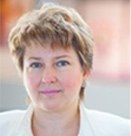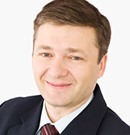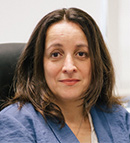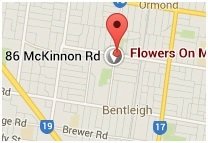Cervical Cancer Vaccinations
What is the HPV vaccine?
Human papillomaviruses (HPV) are the major cause of cervical cancer in women. Genital warts and some cancers in males are related to HPV, including most anal cancer, and some cancers of the penis, head and neck.
The HPV vaccine triggers the formation of antibodies to produce immunity and therefore protects the body from disease.
The HPV vaccine currently available in Australia is called Gardasil. This vaccine prevents infection with HPV types 16, 18, 6 and 11. HPV 16 and 18 are responsible for the majority (70% internationally; 80% in Australia) of cervical cancers. HPV 6 and 11 are responsible for 90% of genital warts. Having the vaccine will protect those who have never been exposed to these types of HPV.
Does the vaccine protect against all HPV types?
HPV are a group of over 100 different viruses. Some HPV types are more likely to lead to the development of cancer than others. At least 14 types of HPV have been found to cause cancer however the vaccine only protects against two out of the 14. Therefore, Pap tests are still critically important. Women between the ages of 18-70 years who have ever had sex need to have a Pap test every two years whether or not they have been vaccinated.
Who is eligible for the vaccine?
The vaccine is most effective if given to girls and boys before the start of sexual activity and, therefore exposure to HPV.
Under the National Immunisation Program Gardasil is free for three groups:
- 12-13 year old girls in a school-based program, generally delivered in the first year of high school
- 12-13 year old boys in a school-based program, generally delivered in the first year of high school
- A catch-up group of 14-15 year old boys in a school-based program, delivered in Year 9 during 2013 and 2014.
For all other people, the cost of the vaccine is around $460; this does not include the cost of the visit to the GP who must prescribe the vaccine.
How is the vaccine administered?
GPs will administer the vaccine in three injections in the upper arm or thigh over a six-month period.
Will ‘boosters’ be required, and if so, how often?
Since the vaccine is new, more studies need to be done. It is not yet clear if or when boosters will be needed.
Is the vaccine safe?
Tests of the vaccine showed only minor problems. Some people had a slight fever; others had redness or irritation of their skin at the site of where the vaccine was administered.
I can’t afford the vaccine. Are Pap tests still a good option?
Pap tests are still critically important. Women between the ages of 18-70 years who have ever had sex need to have a Pap test every two years whether or not they have been vaccinated.
Should I have my son vaccinated?
The HPV vaccine will be offered to 12-13 year old boys from 2013 as part of the National Vaccination Program. Genital warts and some cancers in males are related to HPV, including most anal cancer, and some cancers of the penis, head and neck.
I am sexually active. Will the vaccine benefit me?
You will not be protected if you have already have been infected with the HPV types, covered by the vaccine, prior to vaccination. The Cancer Council recommends regular Pap tests every two years for all women who have ever had sex. For these women, Pap tests are still the best protection against cervical cancer.
What trials have been undertaken to test the vaccine?
Clinical trials across Australia and in the US have shown the vaccine to be close to 100% effective against HPV types 16 and 18.

Looking Beautiful..!!
- Monday, Tuesday & Friday: 8AM-9PM
- Wednesday & Thursday: 8AM-6PM
- Sat: 9AM-1PM
- Sun: Closed

 Menu
Menu





















